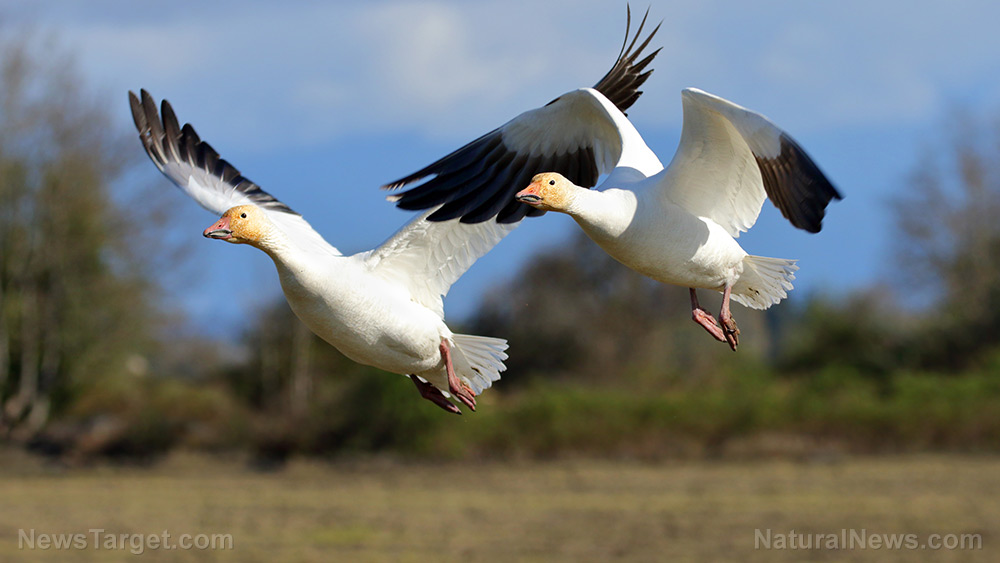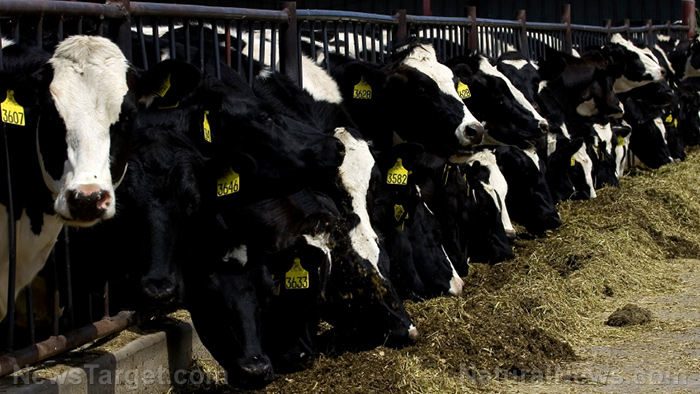Home // Home & Life
The common animal most people are missing from their homestead
By Russel Davis // Aug 13, 2018
TAGS: animals, farms, goose, goose meat, Homestead, homesteading, off grid, Off Grid living, Poultry, prepping, rural living, survival food

With their honking noise and territorial behavior, geese may not be every homesteader's cup of tea. However, both seasoned and novice homesteaders should consider adding geese to their poultry, as these birds offer so much more than their infamous noise. For one thing, geese have long had a reputation of being self-sufficient poultry. Leave them free roaming and all is well for the day. The animals also have a reputation for being low maintenance poultry and have been valued for their meat and other products. Geese are also noted for their ability to adapt to any environment, especially in cooler climates.
Advantages of raising geese for homestead
Raising geese for homesteading has many advantages that go beyond the usual poultry-by-products. Here are a few:
- Meat -- The main point of raising poultry is to have a constant supply of bird meat and eggs. Domestic geese often weigh between 12 to 16 pounds, with larger breeds tipping up to 25 to 30 pounds. A typical goose carcass may yield up to 60 percent of usable meat. The meat, according to experts, have a rich, unique flavor. On the other hand, goose liver is highly priced among top chefs. What's more impressive is that despite its large size and high meat yield, geese actually eat a lot less than other poultry such as chicken and ducks. Unlike other poultry staples, geese can survive a winter on oats and little corn. (Related: Frying your food in lard is healthier than using sunflower oil, say scientists.)
- Eggs -- Geese are known to be impressive layers, producing as many as 50 to 60 eggs a year. Goose eggs are roughly twice the size of a regular chicken egg. Experts have also noted that goose eggs have higher yolk-to-egg white ratio compared with chicken eggs. Goose eggs are much sought-after baking commodities.
- Feathers -- Down feathers from geese are prized for their softness, which are a staple in manufacturing pillows and comforters. The longer flight feathers can be used as decorations.
- Weeding -- Aside from producing poultry fare, geese are also known as excellent weeders. In summers, when the conditions are favorable, geese live off eating grass and weeds. Keeping a flock may prove beneficial in maintaining the garden's healthy condition. In fact, vineyards and orchards are known to use geese as a natural means of eradicating weed from crops, minus the need for toxic herbicides.
- Guarding -- The animals have long been regarded as excellent barnyard guards. The geese's loud, honking noise and relatively large, bulky size are in fact an advantage for every homesteader. The animals' large build, extensive wingspan, and seemingly fearless demeanor are found to deter smaller predators such as foxes from attacking more vulnerable poultry such as chicken and ducks. The animals are also famous for their their acute perception of danger, and their use of their alarming bird call to warn others of danger.
- Longevity -- Unlike other poultry animals, geese are hardy waterfowls have extra strong immune systems that render them less susceptible to contagious diseases. In addition, a healthy goose that does not fall prey to larger predators may live between 15 to 20 years.
Considering all these factors, you may want to rethink your assumptions and select a few geese to raise for your own. Read more at Homesteading.news.
Sources include:
Related Topics
animals farms goose goose meat Homestead homesteading off grid Off Grid living Poultry prepping rural living survival foodLatest News
04/27/2023 / By Ethan Huff
Related News
04/25/2023 / By Ethan Huff
03/27/2023 / By Zoey Sky
03/08/2023 / By Zoey Sky
03/02/2023 / By Ethan Huff
02/27/2023 / By Arsenio Toledo
02/26/2023 / By Cassie B.
Take Action:
Support NewsTarget by linking to this article from your website.
Permalink to this article:
Copy
Embed article link:
Copy
Reprinting this article:
Non-commercial use is permitted with credit to NewsTarget.com (including a clickable link).
Please contact us for more information.
Please contact us for more information.





















